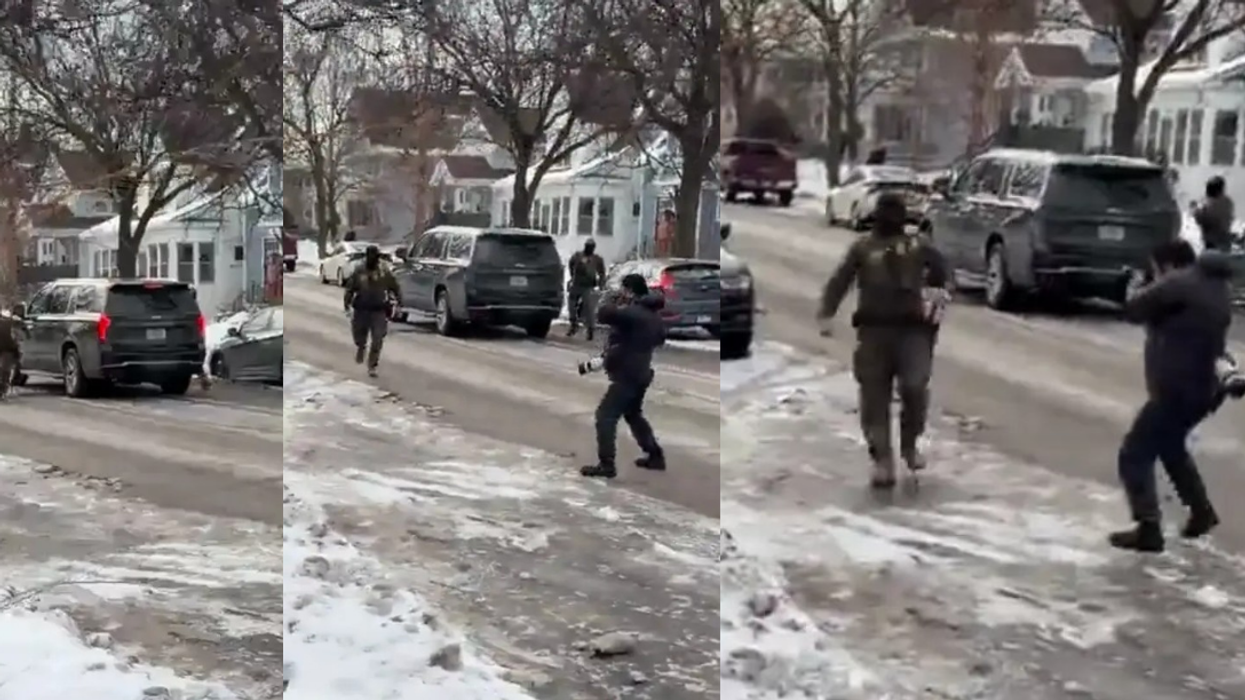An Alabama woman has been charged after leaving her dog to die in a hot car.
Police were called after customers outside the Trussville, Alabama Walmart noticed the dog trapped in the car, but by then it was already too late.
According to police, Stephanie Shae Thomas parked her older model Mercedes in the Walmart lot some time around 4am on July 4th.
At 11am customers noticed the dog trapped in car and called 911. When police arrived they tried to find the owner of the vehicle, but Thomas was still inside the store.
Eventually officers broke open a window and removed the dog who was still alive, but according to police the dog was "in distress."
"Efforts were made to keep the dog alive but sadly, the dog did not survive."
Thomas exited the Walmart shortly after 12pm and officers confirmed that she was the owner of the vehicle. Thomas confessed that she left the dog inside her car while she went shopping and had lost track of time.
She was released at the scene but told an investigator would be contacting her.
On Thursday a felony warrant was issued for aggravated cruelty to animals. Thomas was arrested than transferred to the Jefferson County Jail on a $25,000 bond.
Although we hear similar stories every summer it seems there are still people who just haven't learned how dangerous a hot car can be.
And many outraged pet lovers agreed anyone who does this to their dog deserves some of the same treatment.
The story eventually prompted a discussion about the legality of police or bystanders breaking open vehicle windows to save animals under similar circumstances.
As with many laws though it can vary state by state. Currently 29 states have some form of "hot car" law, but they vary widely, and action is often limited to law enforcement or humane officials. Only 13 states have "Good Samaritan" laws that allow private citizens to take action.
Police advise knowing your local laws before acting , otherwise you could be held responsible for any damage done.
H/T - Indy100, Tussville Tribune, Animal Legal Defense Fund















 @sabrinavonb/TikTok
@sabrinavonb/TikTok @sabrinavonb/TikTok
@sabrinavonb/TikTok @sabrinavonb/TikTok
@sabrinavonb/TikTok @sabrinavonb/TikTok
@sabrinavonb/TikTok @sabrinavonb/TikTok
@sabrinavonb/TikTok @sabrinavonb/TikTok
@sabrinavonb/TikTok @sabrinavonb/TikTok
@sabrinavonb/TikTok @sabrinavonb/TikTok
@sabrinavonb/TikTok @sabrinavonb/TikTok
@sabrinavonb/TikTok @sabrinavonb/TikTok
@sabrinavonb/TikTok

 @tismejackieg/TikTok
@tismejackieg/TikTok

 @tismejackieg/TikTok
@tismejackieg/TikTok @tismejackieg/TikTok
@tismejackieg/TikTok @tismejackieg/TikTok
@tismejackieg/TikTok @tismejackieg/TikTok
@tismejackieg/TikTok @tismejackieg/TikTok
@tismejackieg/TikTok @tismejackieg/TikTok
@tismejackieg/TikTok @tismejackieg/TikTok
@tismejackieg/TikTok @tismejackieg/TikTok
@tismejackieg/TikTok
 @tismejackieg/TikTok
@tismejackieg/TikTok @tismejackieg/TikTok
@tismejackieg/TikTok @tismejackieg/TikTok
@tismejackieg/TikTok
